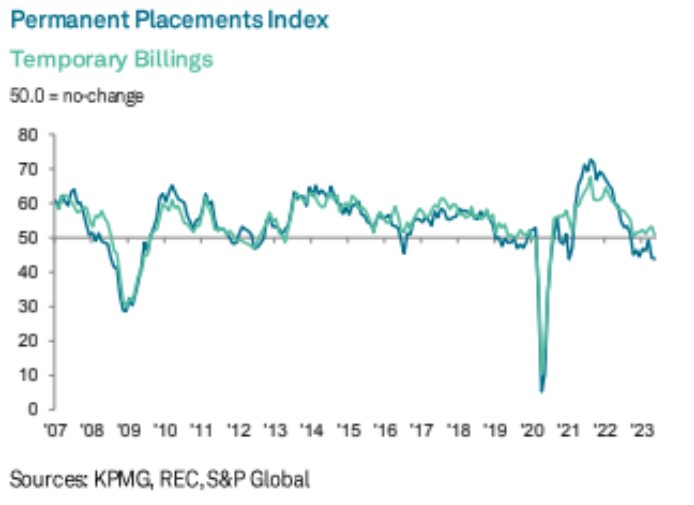Labour market loosens as UK records surge in job seekers following hiring slowdown

The UK’s labour market recorded a surge in candidates looking for roles last month amid a continued slump in hiring, easing the rate of starting salary inflation.
The supply of labour in the UK increased for the third month in a row, with the rate of people looking for jobs increasing at its fastest rate in three and a half years.
According to consultancy KPMG and the Recruitment and Employment Confederation (REC), the broader pool of candidates contributed to a softer rate of increase in starting pay.
Although the increase was still at a “historically sharp pace”, it was at its slowest pace in over two years.
The increase in the number of job candidates came after a “marked fall” in permanent staff appointments. All four regions monitored by the report recorded a slowdown, with London’s hiring rate falling at the fastest pace.
This meant the permanent placing index – which measures how quickly firms are taking on full-time staff – dropped to 43.8, down from 44.2 in April. The 50 point threshold separates growth from contraction.
Temporary appointments recorded only a “slight” rise having performed more strongly in recent months. The index stood at 50.7, down from 53.3 last month.

Temporary appointments have performed more strongly in recent months, as firms worried by the possibility of a slowdown turned to part-time workers who can often be let go quickly.
The report highlighted that economic uncertainty and delayed decision-making continued to dampen hiring activity.
Claire Warnes, partner at KPMG said: “The jobs market remains subdued, with the latest survey results showing dampened hiring activity amid ongoing economic concerns.”
However, Warnes suggested that businesses eyeing expansion can feel “optimistic” given the “increasing pool of available candidates”.
Chief executive of the REC Neil Carberry commented: “For hiring businesses, greater candidate availability will help resolve shortages, though inflation means wage growth remains high.”